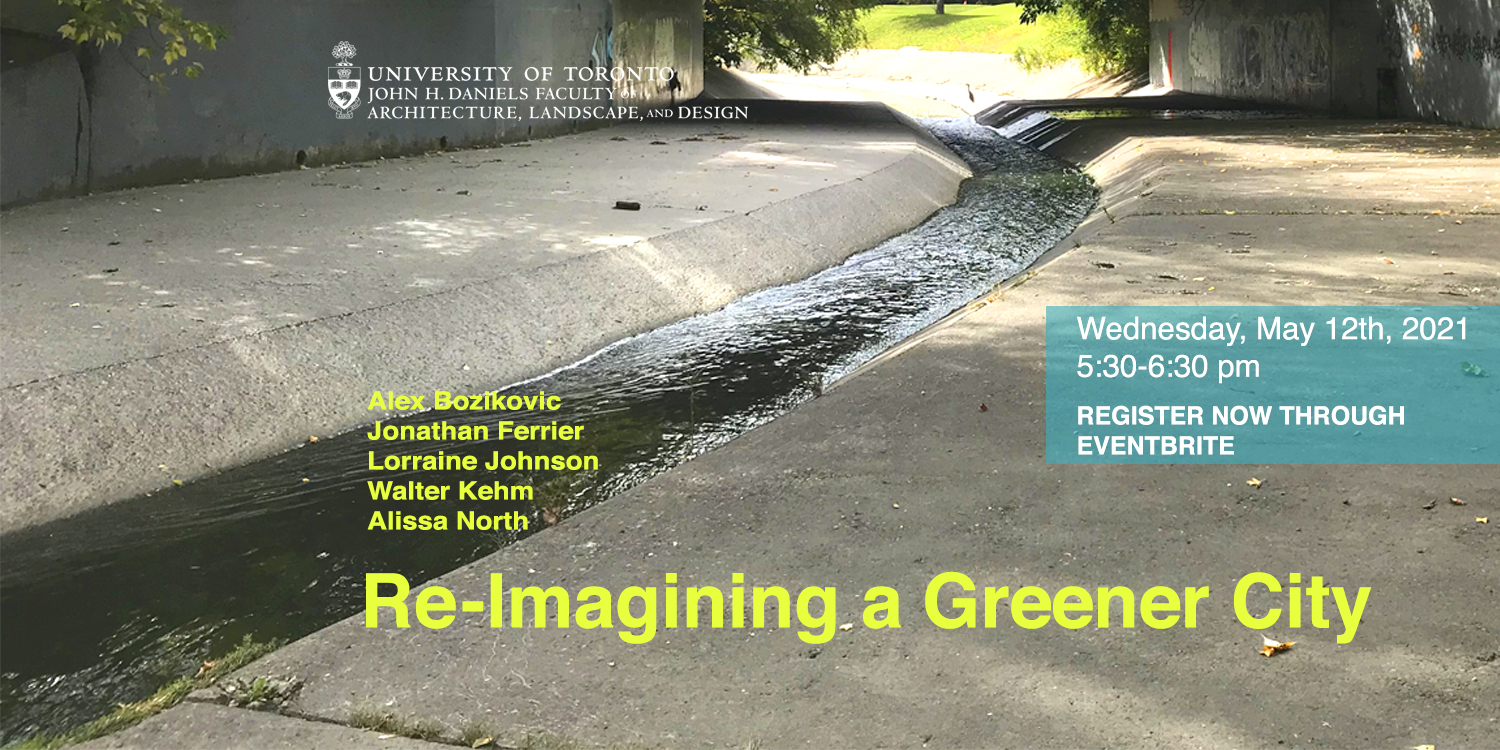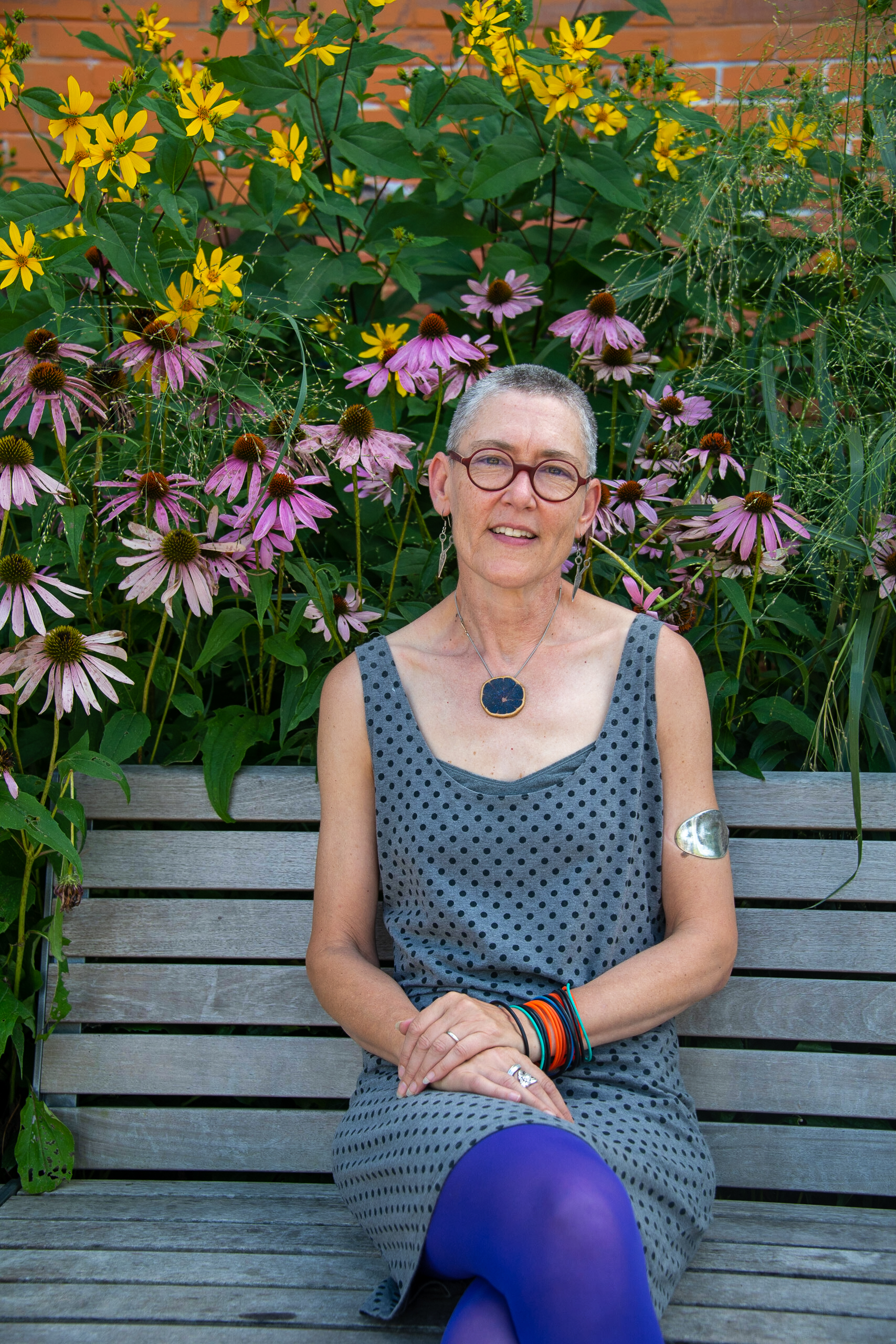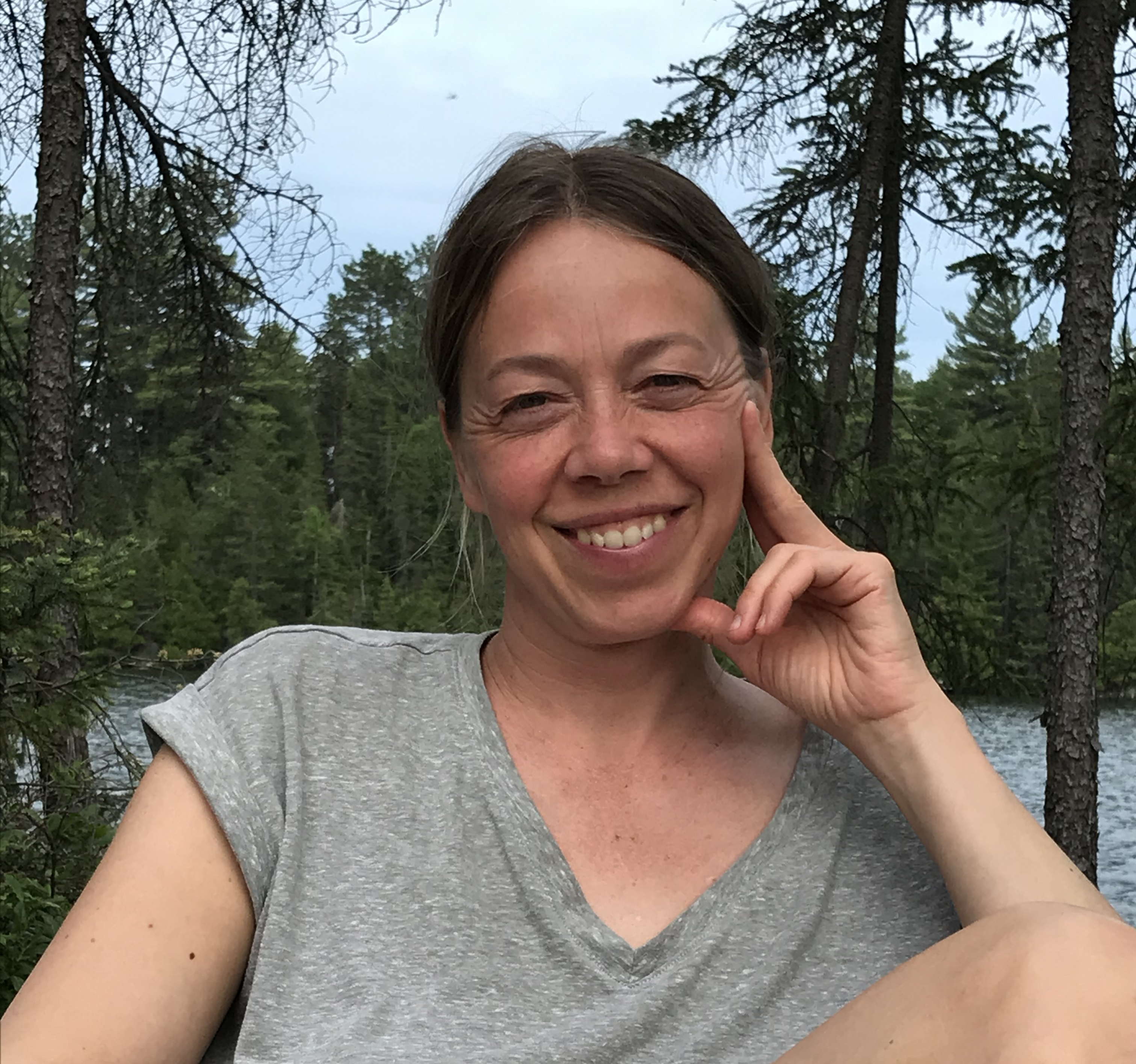
Re-Imagining A Greener City
-
“Re-Imagining A Greener City” has been added as a fourth webinar in the Accidental Wilderness series, due to the popularity of these events.
Toronto has recently enacted several strategies toward becoming greener. This includes initiatives such as Toronto’s Biodiversity Strategy, Pollinator Strategy, Tree Planting Strategy to get to 40% canopy cover, Parkland Strategy, Green Standard, Ravine Strategy, and Resilience Strategy, to name a few. What do these strategies look like on the ground and what are their potentials for achieving a “greener” city?
Cities have hundreds of hectares of land that are not utilized to their full green potential. Tree wells could be expanded as biodiverse planting beds, railway and utility rights-of-way, industrial lands, port lands, existing parks, and golf courses can be ecologically retro-fitted, roof tops and hydro corridors can absorb storm water and decrease urban heat, clover covers can replace lawns, streets can be intensively greened and pedestrian-oriented, and new habitat parklands can be introduced to the Toronto waterfront. These Integrated city-wide reimaginations have the potential to move Toronto from reliance on grey infrastructure, requiring constant and expensive reconstructions, toward self-renewing natural infrastructure, that will address larger climate concerns.
This webinar will present the ideologies and dreams of four panelists. They are passionate about the ecological and cultural health of our urban environments. Their understandings and experiences range from implementation of green technologies to the millennia of Indigenous living in balance on the land. The links between human health are intricately involved with accessible connections to nature. The Covid-19 pandemic in particular, has revealed the inadequacies of the city’s green infrastructure. The panelists will discuss new proposals for increasing Toronto’s greenness, as spaces for thriving ecological health and ongoing regenerative processes.
The event will be introduced and moderated by Alex Bozikovic, The Globe and Mail’s architecture critic. Lorraine Johnson will present Toronto’s natural garden exemption, in relation to the city’s biodiversity and pollinator strategies; Walter Kehm will present his work at Humber Bay Park; Alissa North will present her research and imaginative design proposals for the ravines and intense urban spaces; and Jonathan Ferrier will present ecological frameworks from the territory. The succinct presentations will be followed by a half-hour discussion, where questions via chat are welcomed.
Webinar Hosted by—Daniels Faculty, University of Toronto
The Daniels Faculty of Architecture, Landscape, and Design at the University of Toronto offers graduate programs in architecture, landscape architecture, urban design, forestry, and visual studies, as well as undergraduate programs in architectural studies, and visual studies. Its mission is to educate students, prepare professionals, and cultivate scholars who will play a leading role in creating more culturally engaged, ecologically sustainable, socially just, and artfully conceived environments.
Moderator

Alex Bozikovic—Alex is The Globe and Mail's architecture critic. He has also written for Architectural Record, Azure, Dwell and Landscape Architecture Magazine. He is author of Toronto Architecture: A City Guide (McClelland and Stewart, 2017) and co-editor of House Divided (Coach House Books, 2019). He won the 2019 President’s Medal for Media in Architecture from the Royal Architectural Institute of Canada.
Panelists

Lorraine Johnson—Lorraine is the author of numerous books on native plant gardening, stewardship, conservation and urban agriculture. Her most recent book, 100 Easy-to-Grow Native Plants for Canadian Gardens (Douglas And McIntyre, 2013), is about growing habitat for pollinators.

Walter Kehm—Walter is an author of Accidental Wilderness (UTP, 2020) and created the masterplan for Tommy Thompson Park in the mid-1980’s. As a practicing landscape architect and ecologist, he has stayed involved with Tommy Thompson Park over the last four decades. His most recent work is the design and construction of Trillium Park at Ontario Place.

Alissa North—Alissa is an Associate Professor of Landscape Architecture at the University of Toronto, where her research focus is on process-based landscapes. She is author of Operative Landscapes: Building Communities Through Public Space (Birkhäuser, 2013). Alissa is a Co-Founding Director of North Design Office, a Toronto landscape architecture firm.
Jonathan Ferrier—Jonathan is an Anishinaabe Assistant Professor in the Department of Biology at Dalhousie University, with research focus on Ethnobotany, Metabolomics, and Indigenous Studies.

